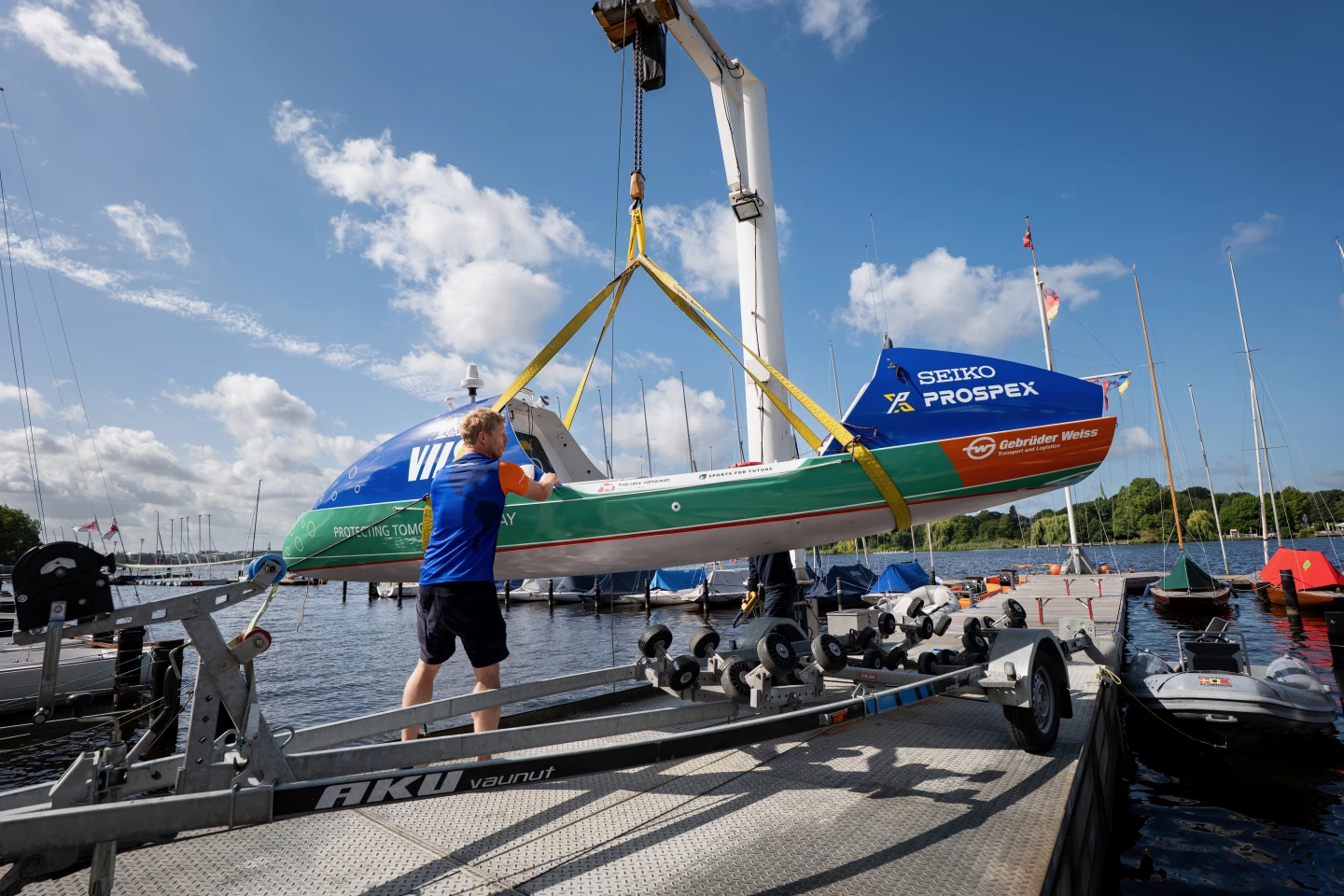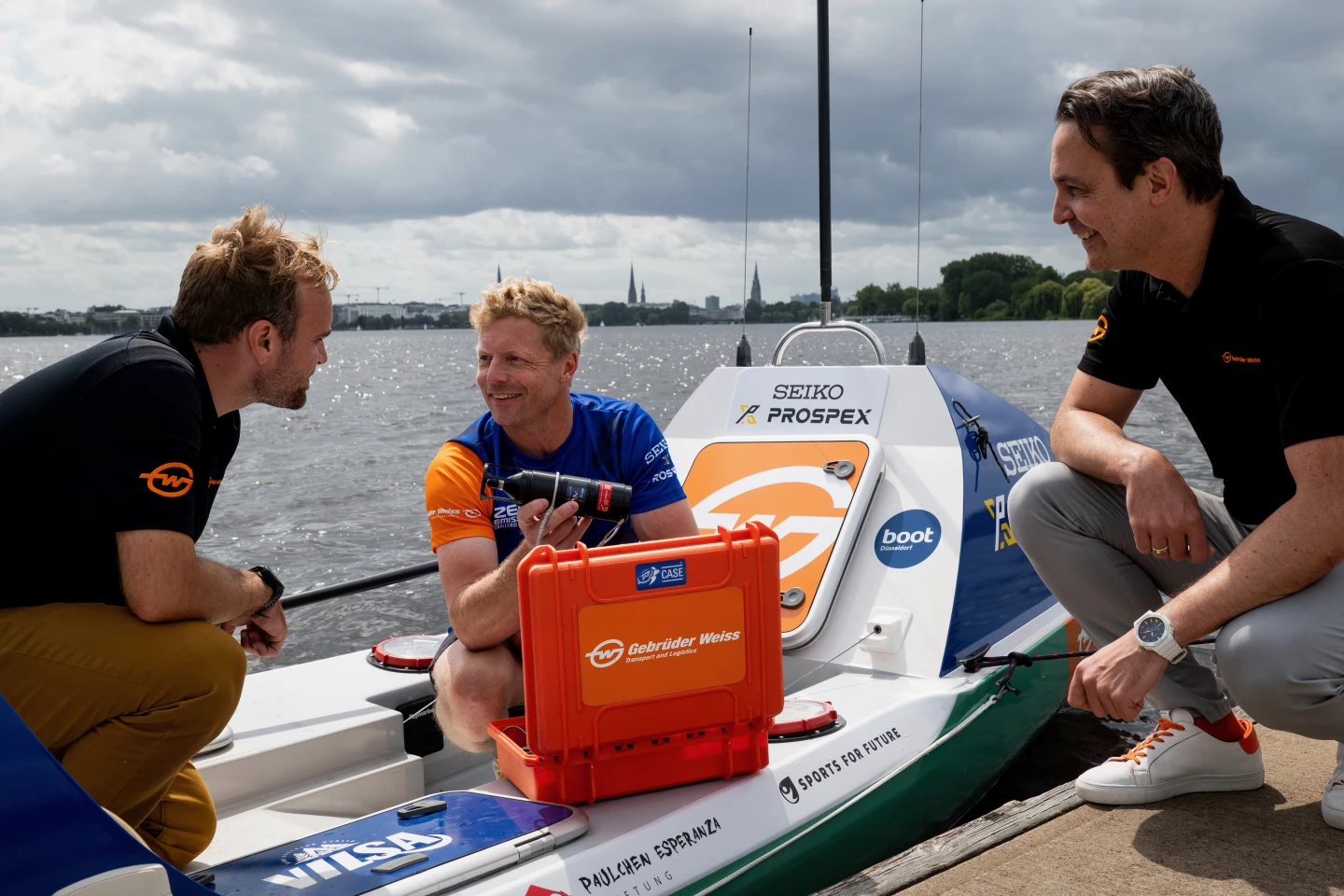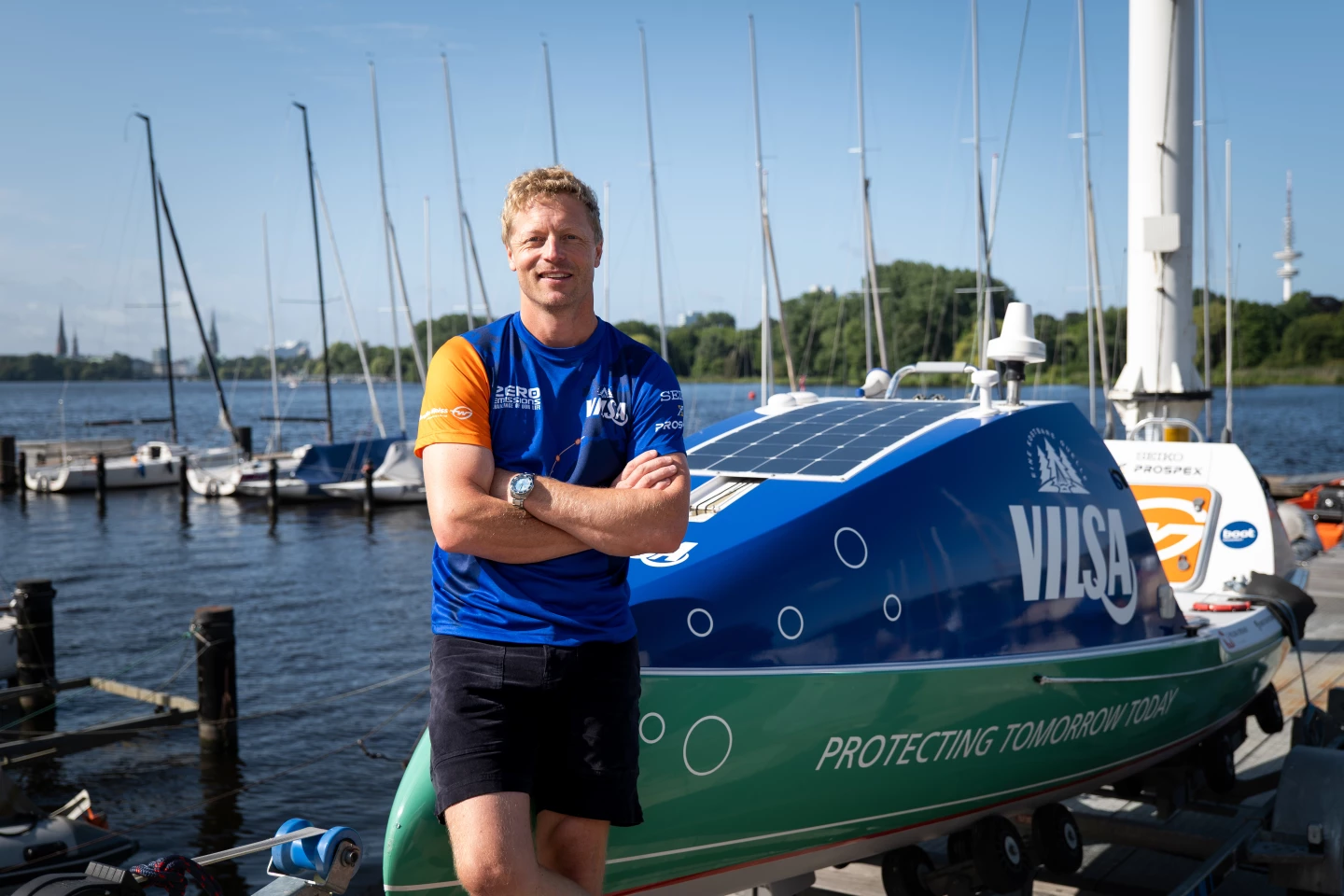So, you're pretty impressed with that local lake crossing you made on your stand-up paddle board. Well, later this month, German water sports enthusiast and environmental activist Michael Walther will attempt to cross the Atlantic Ocean on an SUP. If he succeeds, he will be only the second person to ever do so.
The trip is the culminating event in Walther's Zero Emissions project, which has been aimed at drawing awareness to human-caused climate change for the past 17 years.
On or around Sept. 15th, he will set out from the port of Lagos in the southwestern tip of Portugal, initially heading south as he passes between the Canary and Cape Verde Islands. Michael will then take a more southwestern course across the Atlantic toward his final destination: the port of Cayenne in French Guiana.

He expects to take approximately three months to complete the approximately 6,000-km (3,728-mile) trip, making about 4 million paddle strokes and consuming 600,000 kilocalories as he does so. And no, he won't be using an inflatable SUP of the type that you'd stick in your car.
Walther's watercraft actually started out as a self-righting Rannoch R10 ocean rowing boat, which he slimmed down to its current 6-meter (19.7-ft), ~200-kg (441-lb) form. Fully loaded with food and other supplies, it should ultimately tip the scales at around 500 kg (1,102 lb). Its onboard electronics are powered by batteries which are charged by an array of front and rear photovoltaic panels.

Michael won't be accompanied by a support vessel on his expedition, but his position will be tracked in real time via satellite, plus he will be in constant communication with his Gebrüder Weiss logistics crew via a satellite telephone.
Other safety and navigational aids include a life raft, digital chart plotter, EPIRB (emergency position-indicating radio beacon), mast-mounted positional strobe light, and a foot-steerable rudder. Walther will sleep in a forward compartment, and drink water supplied by a Schenker reverse-osmosis water maker.

You'll be able to track his progress in real time on the Zero Emissions website. In the meantime, check out the following video tour of his SUP, which he shot especially for us.
And just for the record, the first-ever successful crossing of the Atlantic Ocean on an SUP was made in 2016 by South African surfer Chris Bertish. He took 120 days to paddle a custom-built watercraft 7,400 km (4,598 miles) from Agadir, Morocco to the Caribbean island of Anegada in the British Virgin Islands.
Sources: Zero Emissions, Gebrüder Weiss








